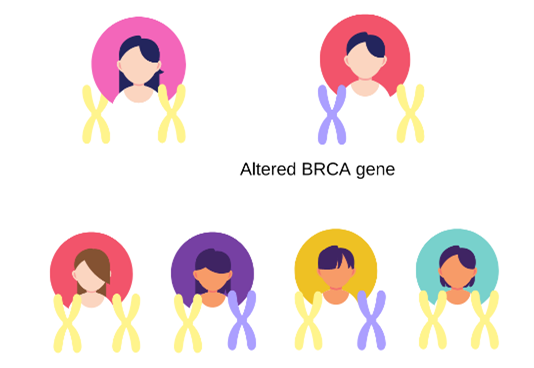Knowing you have an increased risk of cancer can be frightening and you may feel your life will never be the same again.
On the other hand, knowing the facts can help you take steps to reduce your risk of cancer. It can give you a sense of control.
Remember that a genetic test may also show that you have not inherited the altered gene. This can be a big relief.
If you are referred to a genetics clinic, you can go and still decide not to have genetic testing if it is offered to you. Talking to a genetic counsellor at the clinic will help you to understand everything and help you to make the decision that feels right for you.




